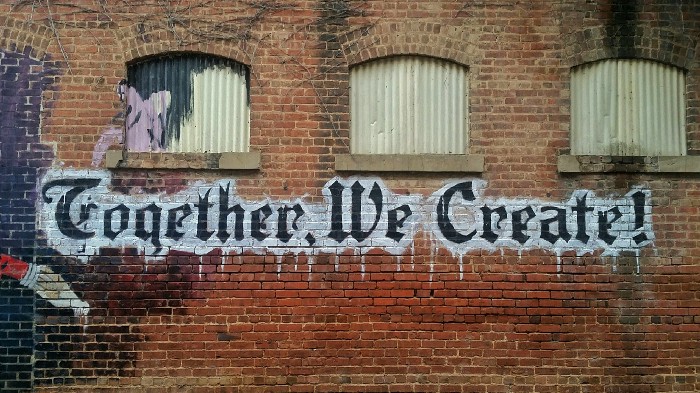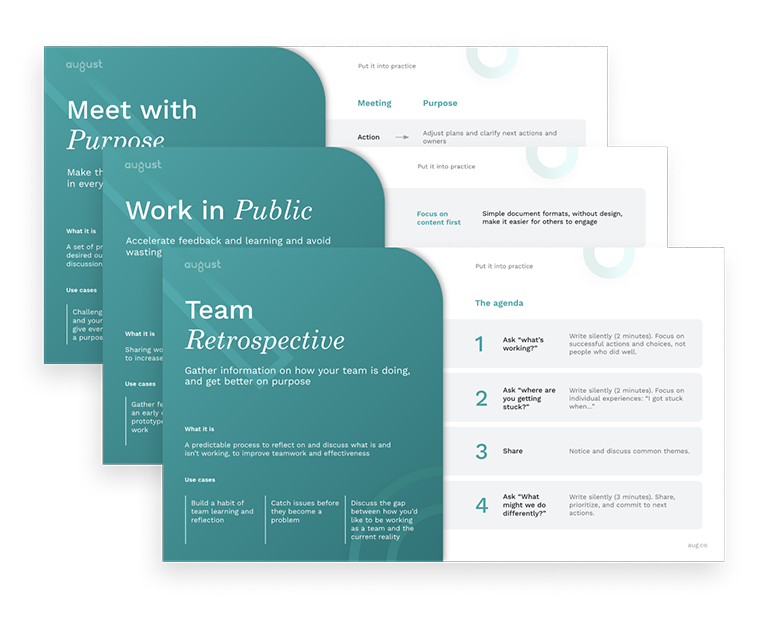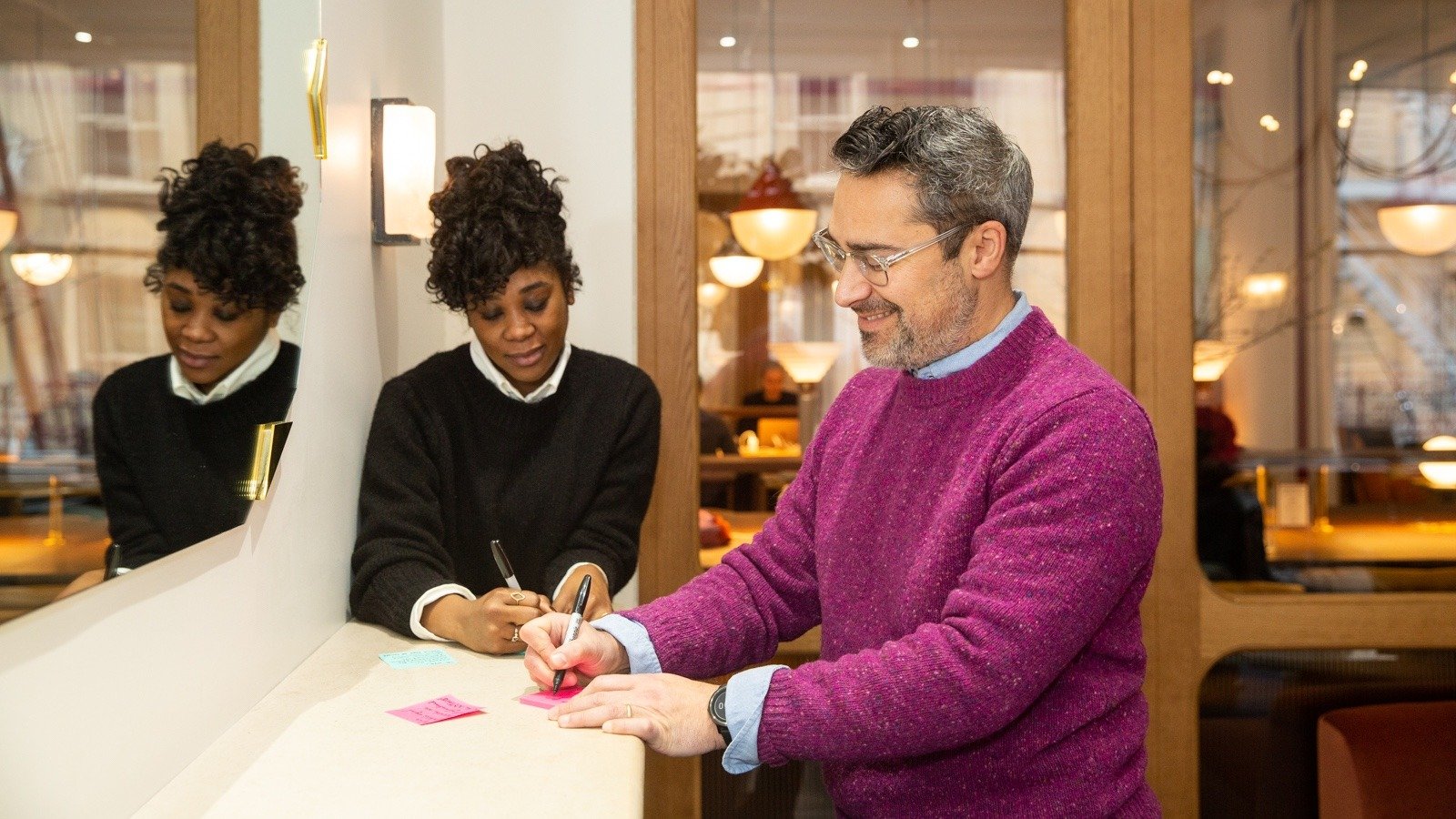Published April 30, 2020 | Updated February 4, 2021 | 3 minute read
Many organizations are born with an internal competitive spirit, or it develops over time. If you’re a leader in a culture like this, you might find that at some point, this spirit does not seem to be serving the organization’s purpose. How do you know if you’ve gotten to that point? Check for these warning signs:
- People hoard opportunity and information, sharing either with just a select few who are “on their side.”
- Managers try to “protect” their direct reports from influence, interaction, or requests from other teams.
- Individual achievement is what gets publicly praised, or folks get used to looking for “heroes” that push through the hardest work. The people behind the scenes of that success are ignored.
- People make decisions to advance their own status and career progression, even if those decisions harm others in the org.
If you notice these tensions, it’s time to intervene and try some new things. Why? Because most people don’t want to work in a hyper-competitive culture. It tends to de-motivate employees and disconnects them from a broader purpose. Work becomes “just a job” that’s filled with exhausting political maneuvering… and makes you want to search for your next gig.
So what to do? Here are some concrete tips for shifting an internal culture from competition to cooperation.
Create a hierarchy of goals
Every individual should have goals that support the purpose and strategy of the organization. Those goals should be written down, in a place where anybody in the org can see them. If the purpose and strategy of the organization changes, so should the individual goals. As a leader, you can facilitate open discussion and critique of these goals to help people make them better. Guide employees to see how their goals intersect with each other and ladder up to the broader strategy. Encourage individual goals that require people to collaborate with each other.
Solve problems together (not separately)
People are most energized about collaboration when they are solving a problem that matters to them. Look for moments when individuals are relying on only themselves to solve (or hide) some hairy problem. Help them bring in others to solve together, and watch multiple minds create better possible solutions. The way our brains work will support you here: it feels good to receive help from others, and it feels good to help others.
Celebrate team success and team failure
How are stories about good work told in All Hands? In Slack? In the hallways? (I’m hoping we get to be in the hallways together again someday.) If it’s mostly about individuals, change your tune. For two weeks, try telling stories only of teams that worked together to succeed. Talk about the different roles that people played, and how they supported each other. Explicitly connect the team’s success to the organization’s purpose. The flip side of this is failure: tell stories about the mistakes we make together, and what those involved learned from them. Thank people (over and over) for doing the scary work of talking about their failures — it’s uncomfortable but helps us all learn quickly.
Build trust (or repair broken trust)
A common driver of a competitive and individualistic mindset is a lack of trust in colleagues. This might mean that people actively avoid teamwork because they believe it will fail. I often step into these “low-trust environments” and encourage leaders to try these tactics:
- Listen more than you talk, and ask questions that show you care
- Be intentional about what you say when you talk about your interests, expectations, ideas, beliefs, and values
- Learn how to effectively give and receive interpersonal feedback, and coach others in doing the same
- Model openness about your capability: when you don’t know something, say so and ask for help, clarification, or whatever you need to get something done
Do any of these strike a chord with you? I invite you to try them and tell me how it goes. We all know the powerful benefits that teamwork brings to business, but I also firmly believe that humans have an innate desire to cooperate. This becomes most obvious during a crisis (when we rush to give and receive help), but in fact, is always with us. Yet all too often, our organizational structures and practices don’t nourish this desire. Part of a leader’s role is to make cooperation and teamwork the default, not the exception.








